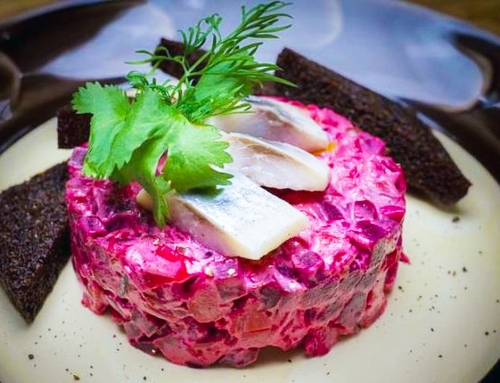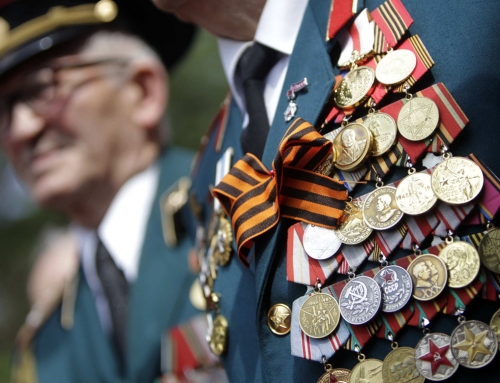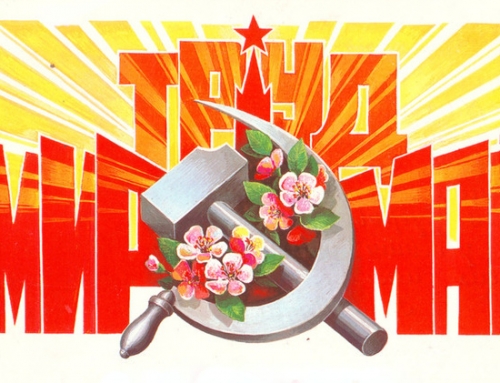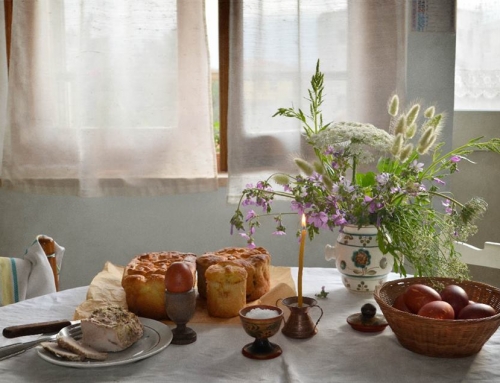Last weekend, despite bone chilling temperatures of nearly 20C below zero in Moscow, thousands of Russian Orthodox faithful took a plunge into icy cold waters to honor Epiphany (Bogoyavlenie) – the revelation of God as Son, and in human form as Jesus Christ.
For believers across Russia, Ukraine and Belarus this holiday is rooted as much in Orthodox Christianity as in ancient pagan traditions. In fact, many Russian rituals can be traced to pagan times, when the people of Rus’ worshiped natural forces and deities associated with nature. As times changed, a number of these customs evolved and were accepted by the Orthodox Christian Church, spawning a magical mix of cultural traditions. In this week’s blog, we explore a few fine examples of ancient Russian customs that are still very much present in modern Russian life.
Ephiphany (Богоявле́ние) – January 19th
In many Western Christian countries Epiphany is known as the “Three Kings Day” or the “Twelfth Day of Christmas.” While traditions vary, the day is typically commemorated by re-telling the story of the Magi (wise men) who visit baby Jesus twelve days after his birth. According to legend, that is when God manifests as human for the first time. Easter Orthodox Christianity and in particular the Russian Orthodox Church, celebrate Epiphany as the baptism of Jesus. To honor the Holiday, the Church performs various rituals of blessing water. A natural water source like a lake or river is chosen and sanctified by a priest. Worshipers then follow a priest-led procession to the blessed water and submerge their bodies, including their head, in the water believed to have special powers.
So where does this tradition of holy water come from?
In Russia, like many other parts of the world, the practice of purification in water is rooted in pagan tradition. Slavs living in Kievan Rus’ worshipped pagan deities and natural forces, believing that water held special healing powers. As a side note, rituals involving the cleansing powers of water can be also found in ancient myths of Egyptians and Greeks. The famousStory of Isis and Orisis, for example, references the belief in water as a source of regenerative power. And in ancient Greek traditions, forms of cultural baptisms were prevalent as a way to symbolic transform one’s life. These practices also often indicated new beginnings and spiritual regenerations.
Ivan Kupala Day (Иван-Купала) – June 23/24
Ivan Kupala Day is another hybrid holiday rooted in pagan rituals and adopted by Russian Christian faithfuls. Named for the mystical deity of Slavic mythology and God of fertility, Kupala is a festival of rituals, divinations and cheerful pranks. It is usually celebrated in late June according to the old Julian calendar.
Ancient Slavs honored the deity with songs, enthusiastic dancing and jumping over bonfires. Celebrating the summer solstice, young people would engage in light mischief and perform pranks involving pouring dirty water on someone, thereby forcing them to cleanse and purify themselves.
Young women used this holiday as an opportunity to peek into their future love life. Girls were said to pick herbs and flowers and string them into wreaths that adorned their heads. At night, girls would caravan to the nearest lake and release the wreaths into the water. It was believed that if a wreath floated away without sinking, prospects for love were on the horizon.
Sometime after the baptizing of Kievan Rus’ and adoption of Christianity, these pagan traditions were accepted by the Orthodox Church as an official Church Holiday, known in Western Europe as St. John’s Day.
Maslenitsa (Ма́сленица)
Maslenitsa, also known as Pancake week, dates back to pagan times when Slavs would bid farewell to winter and welcome in the warmth of spring. The rituals of Maslenitsa are yet another perfect example of the beautifully intermingled relationship between Christian and pagan traditions.
In the old days of Christianity, Maslenitsa marked the last chance for indulgence before starting Lent. According to tradition, once Lent begins people adhere to a strict fast which includes not eating any meat, fish, dairy products and eggs.
At pagan festivities, people feasted on pancakes – symbolic of the hot, golden sun – as a way of ensuring that the sun’s grace would help warm up the frozen earth. Maslenitsa
Strict rites and rituals are observed each day of Maslenitsa, while pankcakes are prepared in large quantities to be shared with friends and neighbors throughout the week. In Russia these pancakes are known as blini and are usually served with caviar, mushrooms, jam, sour cream and lots of butter. This year, Maslenitsa will begin on February 24 and run through March 2.





